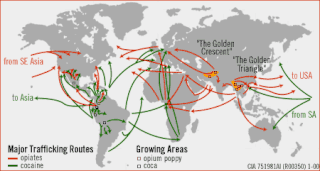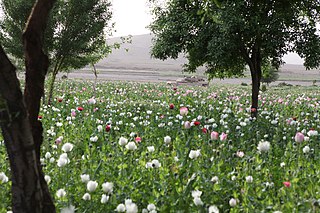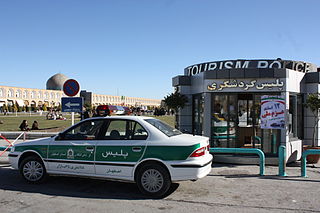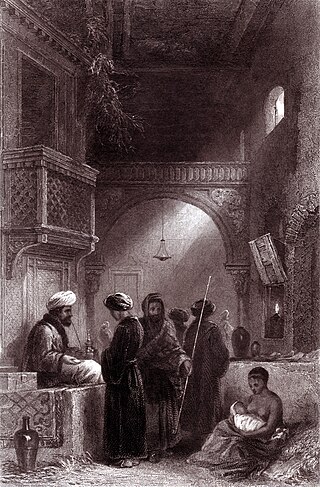
Heroin, also known as diacetylmorphine and diamorphine among other names, is a morphinan opioid substance derived from the dried latex of the Papaver somniferum plant and is mainly used as a recreational drug for its euphoric effects. Medical-grade diamorphine is used as a pure hydrochloride salt. Various white and brown powders sold illegally around the world as heroin are routinely diluted with cutting agents. Black tar heroin is a variable admixture of morphine derivatives—predominantly 6-MAM (6-monoacetylmorphine), which is the result of crude acetylation during clandestine production of street heroin. Heroin is used medically in several countries to relieve pain, such as during childbirth or a heart attack, as well as in opioid replacement therapy.

Opium is dried latex obtained from the seed capsules of the opium poppy Papaver somniferum. Approximately 12 percent of opium is made up of the analgesic alkaloid morphine, which is processed chemically to produce heroin and other synthetic opioids for medicinal use and for the illegal drug trade. The latex also contains the closely related opiates codeine and thebaine, and non-analgesic alkaloids such as papaverine and noscapine. The traditional, labor-intensive method of obtaining the latex is to scratch ("score") the immature seed pods (fruits) by hand; the latex leaks out and dries to a sticky yellowish residue that is later scraped off and dehydrated. The word meconium historically referred to related, weaker preparations made from other parts of the opium poppy or different species of poppies.

The illegal drug trade or drug trafficking is a global black market dedicated to the cultivation, manufacture, distribution and sale of prohibited drugs. Most jurisdictions prohibit trade, except under license, of many types of drugs through the use of drug prohibition laws. The think tank Global Financial Integrity's Transnational Crime and the Developing World report estimates the size of the global illicit drug market between US$426 and US$652 billion in 2014 alone. With a world GDP of US$78 trillion in the same year, the illegal drug trade may be estimated as nearly 1% of total global trade. Consumption of illegal drugs is widespread globally and it remains very difficult for local authorities to reduce the rates of drug consumption.

Central Asia has long been a geostrategic location because of its proximity to the interests of several great powers and regional powers.
Organised crime in India refers to organised crime elements originating in India and active in many parts of the world. The purpose of organised crime in India, as elsewhere in the world, is monetary gain. Its virulent form in modern times is due to several socio-economic and political factors and advances in science and technology. There is no firm data to indicate the number of organised criminal gangs operating in the country, their membership, their modus operandi, and the areas of their operations. Their structure and leadership patterns may not strictly fall in line with the classical Italian mafia.

The Golden Triangle is the area in which the borders of China, Thailand, Laos, and Myanmar meet at the confluence of the Ruak and the Mekong Rivers. The name "Golden Triangle" was coined by the CIA and is commonly used more broadly to refer to an area of approximately 950,000 square kilometres (367,000 sq mi) that overlaps the mountains of the four adjacent countries.

Afghanistan has long had a history of opium poppy cultivation and harvest. As of 2021, Afghanistan's harvest produces more than 90% of illicit heroin globally, and more than 95% of the European supply. More land is used for opium in Afghanistan than is used for coca cultivation in Latin America. The country has been the world's leading illicit drug producer since 2001. In 2007, 93% of the non-pharmaceutical-grade opiates on the world market originated in Afghanistan. By 2019 Afghanistan still produced about 84% of the world market. This amounts to an export value of about US $4 billion, with a quarter being earned by opium farmers and the rest going to district officials, insurgents, warlords, and drug traffickers. In the seven years (1994–2000) prior to a Taliban opium ban, the Afghan farmers' share of gross income from opium was divided among 200,000 families. As of 2017, opium production provides about 400,000 jobs in Afghanistan, more than the Afghan National Security Forces. In addition to opium, Afghanistan is also the world's leading producer of hashish.
Albanian mafia or Albanian organized crime are the general terms used for criminal organizations based in Albania or composed of ethnic Albanians. Albanian organized crime is active in Europe, North America, South America, and various other parts of the world including the Middle East and Asia. The Albanian Mafia participates in a diverse range of criminal enterprises including trafficking in drugs, arms, and humans. Thanks to their close ties with the 'Ndrangheta of Calabria, they control a large part of the billion dollar wholesale cocaine market in Europe and appear to be the primary distributors of cocaine in various European drug hubs including London. Albanian organized crime is characterized by diversified criminal enterprises which, in their complexity, demonstrate a very high criminal capacity. In Albania, there are over 15 mafia families that control organized crime.
The Arifs are a South East London-based Turkish criminal organization heavily involved in armed robbery, drug trafficking and other racketeering-related activities within London's underworld since the late 1960s. Following the downfall of the Kray brothers, the Arifs were one of several criminal organisations who took control of the London underworld including the Clerkenwell crime syndicate and the Brindle family with whom they were engaged in a highly publicised gangland war during the 1990s.
Afghan morphine or "Poppy for Medicine" is an alternative development solution put forward to combat the poverty and public disenchantment caused by international counter-narcotics eradication policies in Afghanistan. Licensing opium poppy cultivation in order to locally manufacture and market Afghan morphine, according to this proposal, would create the economic conditions to empower poverty stricken rural Afghans and cut their ties with the illicit poppy trade.
The illegal drug trade in China is influenced by factors such as history, location, size, population, and current economic conditions. China has one-fifth of the world's population and a large and expanding economy. China's large land mass, close proximity to the Golden Triangle, Golden Crescent, and numerous coastal cities with large and modern port facilities make it an attractive transit center for drug traffickers. Opium has played an important role in the country's history since before the First and Second Opium Wars in the mid-19th century.
This article deals with activities of the U.S. Central Intelligence Agency related to transnational crime, including the illicit drug trade.
Izzatullah Wasifi is a politician in Afghanistan. He served as the chief of General Independent Administration of Anti Corruption since January 2007. As anti-corruption chief Wasifi leads an 84-person staff. Part of their responsibility is addressing Afghanistan's problems with opium.

Crime in Afghanistan is present in various forms, and includes the following: corruption, contract killings or assassinations, bombings, kidnapping, drug trafficking, money laundering, black marketeering, and ordinary crimes such as theft and assault.

Crime in Iran is present in various forms, and may include the following offences: murder, kidnapping, theft, fraud, money laundering, drug trafficking, drug dealing, alcohol smuggling, oil smuggling, tax evasion, terrorism, not wearing "proper" hijab, eating and drinking during Ramadan, drinking alcohol, and many other crimes.
The 14K (十四K) is a triad group based in Hong Kong but active internationally. It is the second largest triad group in the world with around 20,000 members split into thirty subgroups. They are the main rival of the Sun Yee On, which is the largest triad.
Organized crime in Pakistan refers to the activities of groups of organized crime in Pakistan, The Pakistani mafia is spread in many countries. Pakistani mafia groups are mostly ethnically-based. The Pakistani mafia is involved in drug trafficking, assassination, land grabbing, arms smuggling and various other illegal activities.

Crime in Germany is handled by the German police forces and other agencies.

The illegal drug trade in Turkey has played a significant role in its history. Turkish authorities claim that Drug trafficking has provided substantial revenue for illegal groups such as the Kurdistan Workers' Party (PKK), particularly through marijuana cultivation in south-eastern Turkey, and the 1996 Susurluk scandal showed substantial involvement in drug trafficking on the part of the Turkish deep state. The French Connection heroin trade in the 1960s and 70s was based on poppies grown in Turkey.
Turkish mafia is the general term for criminal organizations based in Turkey and/or composed of (former) Turkish citizens. Crime groups with origins in Turkey are active throughout Western Europe and less so in the Middle East. Turkish criminal groups participate in a wide range of criminal activities, internationally the most important being drug trafficking, especially heroin. In the trafficking of heroin they cooperate with Bulgarian mafia groups who transport the heroin further to countries such as Italy. Recently however, Turkish mafia groups have also stepped up in the cocaine trafficking world by directly participating in the massive cocaine smuggling pipeline that runs transnationally from South America to Europe. They allegedly have a lucrative partnership with the Venezuelan drug-trafficking organization known as the Cartel of the Suns who ships them cocaine along with criminal elements from Ecuador. Turkish organized crime has pushed into less traditional cocaine markets as well such as into Eastern Europe, the Caucasus, and the wealthy petro-states of the Persian Gulf. Cosa Nostra and the Turkish Mafia are also known to be extremely close. Criminal activities such as the trafficking of other types of drugs, illegal gambling, human trafficking, prostitution or extortion are committed in Turkey itself as well as European countries with a sizeable Turkish community such as Germany, Netherlands, Belgium, Albania, and the United Kingdom.









